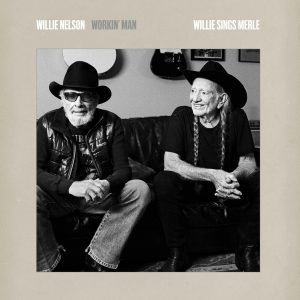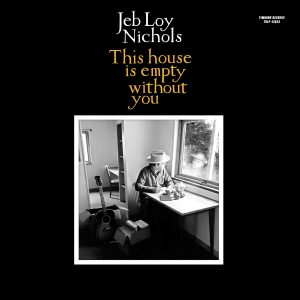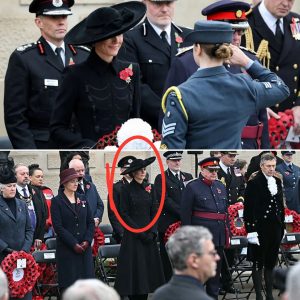Germany’s Bear Family Records deserves plaudits for compiling and releasing exhaustive box sets from some of the best-known figures in early country and rock music. But the reissue label warrants at least as much praise for unearthing and taking a chance on superlative material that most listeners have never even heard of, much less heard.
A perfect example of this is the new Rich-R-Tone Folk Star Story, which fills 12 CDs and has a playing time of more than 14 hours. It collects records released between 1946 and 1954 by Rich-R-Tone, a small, independent Johnson City, Tennessee, label, and its Folk Star subsidiary. The box comes with a coffee table-sized, 144-page hardcover book that includes biographies of the artists, a bibliography, and a wealth of discographic information. The copiously illustrated volume also offers an authoritative history of Rich-R-Tone by two of the box’s co-producers, Ted Olson and Matteo Ringressi.
The book calls Rich-R-Tone “a pioneering bluegrass label and much more,” and indeed it was. In addition to lots of bluegrass, this box embraces everything from gospel, folk, and traditional country to blues, boogie-woogie, and novelties. There are even a few numbers by an Irish tenor.
Most of the recordings here were manufactured in small quantities and have been hard to find, but the anthology’s compilers located 317 of them on analog tapes, acetates, and commercial discs. A German engineer named Chris Zwarg then did an excellent job of mastering the tracks and improving the audio quality. Some of the selections almost sound as if they could have been recorded yesterday.
Fans of mid-20th-century Southern music will likely recognize the name of the act for which Rich-R-Tone is most known: the Stanley Brothers, whose first 14 bluegrass recordings appeared on the label and are all included here. You’ll probably also be familiar with a few of the composers of this anthology’s songs, who include country music giants such as Jimmie Rodgers, Ernest Tubb, Bill Monroe, Floyd Tillman, and Roy Acuff.
But the bulk of this box’s material is obscure—so obscure that in the section of the book devoted to biographies of the performers, the first sentence under many artists’ names begins with “No information has been unearthed on…” In the case of a song called “Rain and Tide,” even the artist’s name is unknown.
The program’s highlights are way too numerous to list in full, but they include such songs as “Tear Drops in the Rain,” by Cecil Gill, which should appeal to Hank Williams fans; “The Glory Special,” by the Payne Sisters, whose harmonies might remind you of the Roches; the traditional “Pretty Polly” and “Little Birdie,” by a bluegrass outfit called the Sauceman Brothers; Texas Slim Owenby’s “Look What You’ve Gone and Done to Me,” one of several numbers written by Rich-R-Tone founder Hobart Stanton; Buffalo Johnson’s “The Sweetest Dream,” which recalls Lefty Frizzell; and the upbeat “Why Pick On Me,” by the Tennessee Valley Boys.
This is the best archival country release of 2025, but it will likely soon be as difficult to find as the original recordings upon which it is based. That’s because production has been limited to 1,000 copies. Consider yourself forewarned.
Willie Nelson, Workin’ Man: Willie Sings Merle. Merle Haggard wrote the song referenced in this album’s title, but the “Workin’ Man” label certainly fits Willie Nelson. Now 92, he is not only still performing concerts but also issuing new recordings at a faster pace than most artists half his age. This latest LP—his 155th (not a typo!) and at least his 10th since 2020—pays tribute to Haggard, his friend and collaborator of many years, who died in 2016.

Nelson’s distinctive, world-weary voice is a good fit for the songs on Workin’ Man, which benefits from his masterfully played guitar and backup by co-producer Mickey Raphael (harmonica), Billy English (drums), and Kevin Smith (electric and upright bass). Also featured in their final recordings with Willie are two of his longtime accompanists: his sister, Bobbie, and drummer Paul English, who died in 2022 and 2020, respectively.
The program features 11 numbers written (or in two cases, co-written) by Haggard, and embraces some of his best-known songs, including “Silver Wings,” “Tonight the Bottle Let Me Down,” “If We Make It Through December,” “Today I Started Loving You Again,” and “Mama Tried.” Granted, Haggard’s original versions of these tunes are definitive, but you can’t go wrong with a talent as big as Nelson’s and songs as great as these.

Jeb Loy Nichols, This House Is Empty without You. How many albums does Jeb Loy Nichols have to release before he garners mass acclaim rather than just a cult following? Who knows, but he has already issued nearly 20 records, and they’re virtually all excellent.
Nichols’s latest, which should garner applause from fans of artists such as Boz Scaggs, Curtis Mayfield, and Allen Toussaint, is no exception. Backed, as on a few of his past CDs, by his record label’s house band, Cold Diamond & Mink, Nichols serves up 10 tracks, all credited to him and the group. A Wyoming native who has long been based in the UK, he has dabbled over the years in everything from reggae and R&B to folk and country. But on these songs, most of which explore the joys and pains of love won and lost, brass-accented Southern soul predominates.
Clocking in at only 31 minutes, the album will leave you hungry for more. The good news, as suggested earlier, is that Nichols’s catalog is large enough to keep you entertained for quite a while.
Jonathan Richman, Only Frozen Sky Anyway. The word “eccentric” could have been created to describe Jonathan Richman, who has traveled his own charmingly quirky road for decades. This 18th studio album, which is no exception, includes a song title that can serve as a warning of what to expect: “But We Might Try Weird Stuff.”
Weird, perhaps, but virtually everything works on this CD, which Richman recorded in less than a week with backup from two longtime associates: Talking Heads keyboardist Jerry Harrison, who shared stages with the singer in the Modern Lovers, and drummer Tommy Larkin. Richman co-produced the mostly self-penned set with his wife, Nicole Montalbano, who plays tamboura on two tracks, and Harrison.
On many of his albums, Richman has projected a sense of childlike innocence. On portions of this CD, however, he eschews that side of his personality as he ponders mortality. His liner notes mention the loss of two musician friends, David Johansen and Andy Paley, and suggest that the record is largely “about how our friends are leaving, in their dying, on an errand, only to return.” Richman underscores that theme in “Se Va Pa’ Volver,” whose French title translates to English as “he’s leaving to come back.” Then there’s the album’s opening track, “I Was Just a Piece of Frozen Sky Anyway,” where Richman contemplates his own death and sings, “When I make my transition, I want everyone to know I only changed position…It’s not a big change.”
The end of life isn’t the only topic on this rhythmic, eminently listenable set, which contains more lyrically upbeat moments than the above paragraph might suggest. “The Older Girl,” for example, looks back on a 14-year-old’s attraction to a 15-year-old, while the acoustic “Night Fever” injects elements of the Bee Gees hit by that name into a very different song about a Saturday night in Europe.





